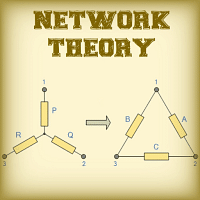Electrical Engineering (EE) Exam > Electrical Engineering (EE) Questions > A starting resistance is inserted at the star...
Start Learning for Free
A starting resistance is inserted at the starting in an induction motor as well as dc motor.
- a)Induction motor has to control starting torque whereas in dc motor, it is done to avoid large current
- b)To limit starting current in both the machines
- c)To limit starting speed
- d)All of the mentioned
Correct answer is option 'A'. Can you explain this answer?
| FREE This question is part of | Download PDF Attempt this Test |
Verified Answer
A starting resistance is inserted at the starting in an induction moto...
For both the machines the purpose is different.
View all questions of this test
Most Upvoted Answer
A starting resistance is inserted at the starting in an induction moto...
Explanation:
In both induction motors and DC motors, a starting resistance is inserted at the beginning of the motor circuit. However, the reasons for doing so differ between the two types of motors.
a) Induction Motor:
The starting resistance is inserted in an induction motor to control the starting torque. When an induction motor is initially started, it requires a high torque to overcome the inertia of the rotor and bring it up to the running speed. By inserting a starting resistance, the starting current is limited, which in turn limits the starting torque. This is necessary to prevent excessive mechanical stress on the motor and the connected load. Once the motor has started and reached a certain speed, the starting resistance is gradually reduced or completely removed to allow full power to the motor.
b) DC Motor:
In a DC motor, the starting resistance is inserted to avoid a large starting current. When a DC motor is initially started, it exhibits a very low resistance, which results in a high starting current. This high current can cause damage to the motor windings and other components. By inserting a starting resistance, the current is limited, preventing excessive current flow and potential damage. Once the motor has started and reached a certain speed, the starting resistance is gradually reduced or completely removed to allow full power to the motor.
c) Limiting Starting Speed:
The starting resistance is not inserted to limit the starting speed of the motor. Instead, it is used to control the starting torque or limit the starting current, as explained above.
Conclusion:
To sum up, the correct answer is option 'A' - the starting resistance is inserted at the beginning of an induction motor to control the starting torque, while in a DC motor, it is done to avoid a large starting current. The starting resistance helps in preventing excessive mechanical stress and damage to the motor and its components during the starting process.
In both induction motors and DC motors, a starting resistance is inserted at the beginning of the motor circuit. However, the reasons for doing so differ between the two types of motors.
a) Induction Motor:
The starting resistance is inserted in an induction motor to control the starting torque. When an induction motor is initially started, it requires a high torque to overcome the inertia of the rotor and bring it up to the running speed. By inserting a starting resistance, the starting current is limited, which in turn limits the starting torque. This is necessary to prevent excessive mechanical stress on the motor and the connected load. Once the motor has started and reached a certain speed, the starting resistance is gradually reduced or completely removed to allow full power to the motor.
b) DC Motor:
In a DC motor, the starting resistance is inserted to avoid a large starting current. When a DC motor is initially started, it exhibits a very low resistance, which results in a high starting current. This high current can cause damage to the motor windings and other components. By inserting a starting resistance, the current is limited, preventing excessive current flow and potential damage. Once the motor has started and reached a certain speed, the starting resistance is gradually reduced or completely removed to allow full power to the motor.
c) Limiting Starting Speed:
The starting resistance is not inserted to limit the starting speed of the motor. Instead, it is used to control the starting torque or limit the starting current, as explained above.
Conclusion:
To sum up, the correct answer is option 'A' - the starting resistance is inserted at the beginning of an induction motor to control the starting torque, while in a DC motor, it is done to avoid a large starting current. The starting resistance helps in preventing excessive mechanical stress and damage to the motor and its components during the starting process.
Attention Electrical Engineering (EE) Students!
To make sure you are not studying endlessly, EduRev has designed Electrical Engineering (EE) study material, with Structured Courses, Videos, & Test Series. Plus get personalized analysis, doubt solving and improvement plans to achieve a great score in Electrical Engineering (EE).

|
Explore Courses for Electrical Engineering (EE) exam
|

|
Similar Electrical Engineering (EE) Doubts
A starting resistance is inserted at the starting in an induction motor as well as dc motor.a)Induction motor has to control starting torque whereas in dc motor, it is done to avoid large currentb)To limit starting current in both the machinesc)To limit starting speedd)All of the mentionedCorrect answer is option 'A'. Can you explain this answer?
Question Description
A starting resistance is inserted at the starting in an induction motor as well as dc motor.a)Induction motor has to control starting torque whereas in dc motor, it is done to avoid large currentb)To limit starting current in both the machinesc)To limit starting speedd)All of the mentionedCorrect answer is option 'A'. Can you explain this answer? for Electrical Engineering (EE) 2024 is part of Electrical Engineering (EE) preparation. The Question and answers have been prepared according to the Electrical Engineering (EE) exam syllabus. Information about A starting resistance is inserted at the starting in an induction motor as well as dc motor.a)Induction motor has to control starting torque whereas in dc motor, it is done to avoid large currentb)To limit starting current in both the machinesc)To limit starting speedd)All of the mentionedCorrect answer is option 'A'. Can you explain this answer? covers all topics & solutions for Electrical Engineering (EE) 2024 Exam. Find important definitions, questions, meanings, examples, exercises and tests below for A starting resistance is inserted at the starting in an induction motor as well as dc motor.a)Induction motor has to control starting torque whereas in dc motor, it is done to avoid large currentb)To limit starting current in both the machinesc)To limit starting speedd)All of the mentionedCorrect answer is option 'A'. Can you explain this answer?.
A starting resistance is inserted at the starting in an induction motor as well as dc motor.a)Induction motor has to control starting torque whereas in dc motor, it is done to avoid large currentb)To limit starting current in both the machinesc)To limit starting speedd)All of the mentionedCorrect answer is option 'A'. Can you explain this answer? for Electrical Engineering (EE) 2024 is part of Electrical Engineering (EE) preparation. The Question and answers have been prepared according to the Electrical Engineering (EE) exam syllabus. Information about A starting resistance is inserted at the starting in an induction motor as well as dc motor.a)Induction motor has to control starting torque whereas in dc motor, it is done to avoid large currentb)To limit starting current in both the machinesc)To limit starting speedd)All of the mentionedCorrect answer is option 'A'. Can you explain this answer? covers all topics & solutions for Electrical Engineering (EE) 2024 Exam. Find important definitions, questions, meanings, examples, exercises and tests below for A starting resistance is inserted at the starting in an induction motor as well as dc motor.a)Induction motor has to control starting torque whereas in dc motor, it is done to avoid large currentb)To limit starting current in both the machinesc)To limit starting speedd)All of the mentionedCorrect answer is option 'A'. Can you explain this answer?.
Solutions for A starting resistance is inserted at the starting in an induction motor as well as dc motor.a)Induction motor has to control starting torque whereas in dc motor, it is done to avoid large currentb)To limit starting current in both the machinesc)To limit starting speedd)All of the mentionedCorrect answer is option 'A'. Can you explain this answer? in English & in Hindi are available as part of our courses for Electrical Engineering (EE).
Download more important topics, notes, lectures and mock test series for Electrical Engineering (EE) Exam by signing up for free.
Here you can find the meaning of A starting resistance is inserted at the starting in an induction motor as well as dc motor.a)Induction motor has to control starting torque whereas in dc motor, it is done to avoid large currentb)To limit starting current in both the machinesc)To limit starting speedd)All of the mentionedCorrect answer is option 'A'. Can you explain this answer? defined & explained in the simplest way possible. Besides giving the explanation of
A starting resistance is inserted at the starting in an induction motor as well as dc motor.a)Induction motor has to control starting torque whereas in dc motor, it is done to avoid large currentb)To limit starting current in both the machinesc)To limit starting speedd)All of the mentionedCorrect answer is option 'A'. Can you explain this answer?, a detailed solution for A starting resistance is inserted at the starting in an induction motor as well as dc motor.a)Induction motor has to control starting torque whereas in dc motor, it is done to avoid large currentb)To limit starting current in both the machinesc)To limit starting speedd)All of the mentionedCorrect answer is option 'A'. Can you explain this answer? has been provided alongside types of A starting resistance is inserted at the starting in an induction motor as well as dc motor.a)Induction motor has to control starting torque whereas in dc motor, it is done to avoid large currentb)To limit starting current in both the machinesc)To limit starting speedd)All of the mentionedCorrect answer is option 'A'. Can you explain this answer? theory, EduRev gives you an
ample number of questions to practice A starting resistance is inserted at the starting in an induction motor as well as dc motor.a)Induction motor has to control starting torque whereas in dc motor, it is done to avoid large currentb)To limit starting current in both the machinesc)To limit starting speedd)All of the mentionedCorrect answer is option 'A'. Can you explain this answer? tests, examples and also practice Electrical Engineering (EE) tests.

|
Explore Courses for Electrical Engineering (EE) exam
|

|
Suggested Free Tests
Signup for Free!
Signup to see your scores go up within 7 days! Learn & Practice with 1000+ FREE Notes, Videos & Tests.
























